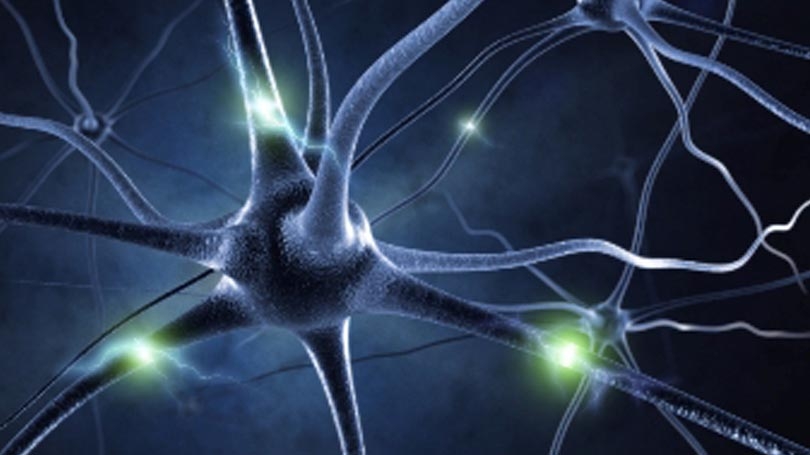
Emily Stephens and Max Mehlman, PhD students in the Department of Psychological and Brain Sciences, spoke about their research into how the brain works at a recent Brain Buzz event in White River Junction.
How does your brain work? Maybe there are days when you wonder if it’s working at all. This fascinating organ is arguably what makes us who we are, but how this happens is largely a mystery.
At a recent Brain Buzz event, hosted by the School of Graduate Studies in partnership with the Upper Valley Food Coop in White River Junction and the Vermont Institute for Natural Sciences (VINS), PhD researchers Emily Stephens and Max Mehlman introduced a packed room to their research and a basic overview of what we know about the brain.
Illustrating the power of the brain over the self, Mehlman began the evening with a story of a local man, Phineas Gage, who had worked at the Hanover Inn. After a terrible accident where he suffered serious damage to his frontal cortex, but miraculously lived, Gage was a changed man. He was impulsive, aggressive, and belligerent and his friends and loved ones no longer recognized him. The physician who saved Gage following the accident, J.M. Harlow, worked at Mary Hitchcock hospital which resided on the site that is now Geisel School of Medicine. In regard to Phineas’ change in personality, Harlow stated that he was, “no longer Gage.” We now know from this unfortunate event, that the area of the brain damaged by Gage’s accident, the prefrontal cortex, is important for controlling our personality. The setting and characters in Mehlman’s telling of Gage’s story provided a local interest to the gathered audience eager to hear more.
Just as damage to our brain can result in damage to our “self”, the reverse is also somewhat true. Audience members raised the issue of post-traumatic stress disorder, where dangerous, violent, and/or stressful experiences have had such a severe impact on the person that the brain releases the same response to the danger even many years after the original threat of danger has passed. An exaggerated self-preservation response (flight-or-fight) is part of the complexity of PTSD, and it might be something that can be calmed through self-talk, or cognitive behavioral therapy.
Stephens, whose research aims to understand the effects of anti-depressant treatment on brain circuitry, noted that there are other therapeutic methods that produce successful outcomes in changing the brain’s response to perceived trauma. “Typically anti-depressants work in the brain to increase the amount of a chemical called serotonin. For some patients, after a period of time experiencing increased brain serotonin (between 3-6 weeks), symptoms of their mood disorder, be it PTSD, depression, or anxiety, are alleviated. The thing is, we don’t know how this happens. Why does it take multiple weeks for antidepressants to make us feel better when we know these medications can change brain chemistry right away? That is the focus of my research.”
Mehlman provided a comprehensive overview of how the brain works then described his research examining how the brain processes information used for navigation. This processing ultimately provides us with a sense of our direction and location in the world, information that allows us to efficiently navigate from one location to another. Mehlman described a circuit in the brain that contains specialized cells functioning like a map and compass. The activity of these neurons – termed head direction cells and place cells – relates to our perceived sense of direction and location, and when these neurons and their associated circuitry are disrupted, so are navigation abilities.
The Brain Buzz events have been a great success, and as we start wrapping up for this season VINS adult program lead, Sarah Sincerbeaux said of the program "VINS' mission is to inspire an appreciation for the natural world and develop the next environmental stewards. The majority of people are familiar with the work we do in the realm of natural science. However our organization is dedicated to science literacy and so Brain Buzz is a wonderful way for VINS to step out of what we are typically known for and become more active in the communication of all branches of science. We are very excited to be involved in this partnership helping scientists and researchers to bring their work to the public."
The final Brain Buzz event of the season takes place on May 10, when we’ll be hearing from the researchers at the Dartmouth Superfund and their work addressing the problem of arsenic in rice. Mark your calendars!